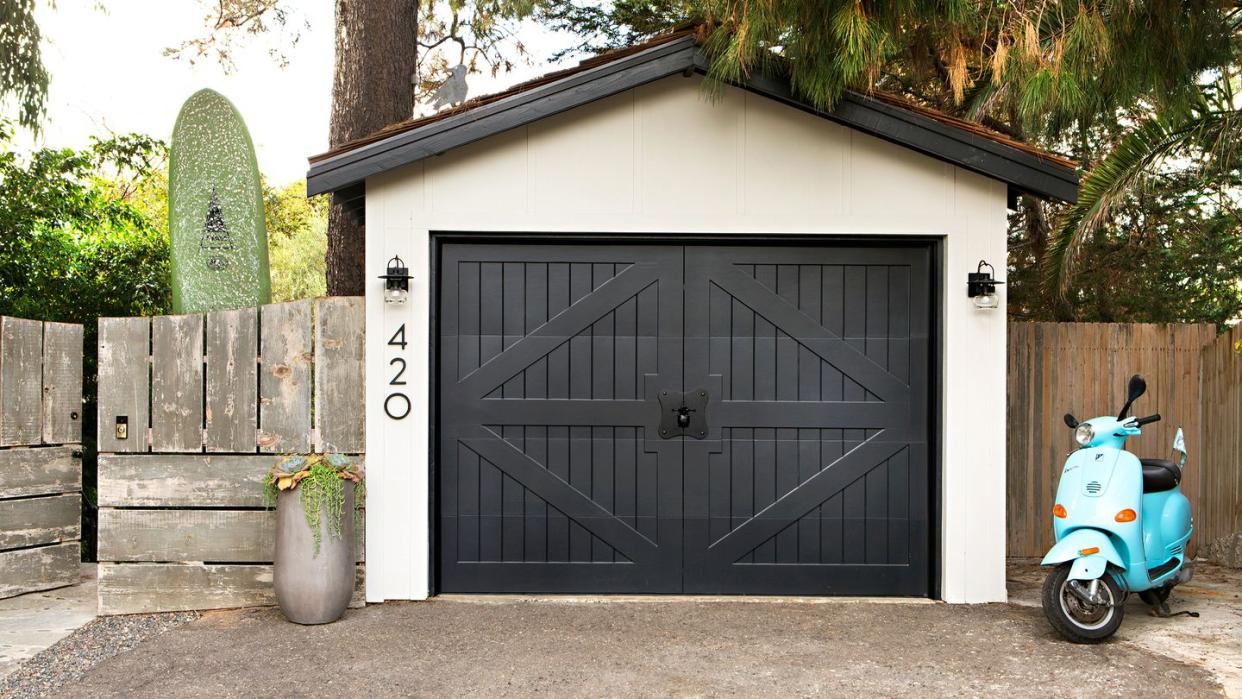Five Advantages of a Gravel Driveway

"Hearst Magazines and Yahoo may earn commission or revenue on some items through these links."
[table-of-contents] stripped
Driveways come in all types of materials, from the usual suspects like asphalt and concrete to tried-and-true brick and even crushed oyster shells. If you're looking for the most budget-friendly driveway material, gravel is the undeniable go-to. Cost aside, there are a few things every homeowner should know about gravel driveways, especially when it comes to maintenance, according to home experts.
We talked with Chelsea Werner, a Miami-based global real estate advisor at One Sotheby's who has 13 years of experience as an agent, and Stacy Brown, the Utah-based director of training at Real Property Management, a Neighborly company, about the pros and cons of gravel driveways.
Pros of Gravel Driveways
Low cost
Relatively easy to DIY
Can help with drainage
Aesthetic appeal
Variety of colors
In addition to the materials being low-cost, installing a gravel driveway is an approachable DIY project, and that could help you save money on labor. If you decide to go the DIY route, you'll need to grade and level the driveway, install a grid support system, and put down a weed barrier to help prevent patches of grass and weeds from springing up. Exactly how big a job that'll be depends on the length and topography of your driveway.
Some more good news about gravel driveways? They're porous, which is a win for drainage. That's something to consider if you live in a place that gets a lot of precipitation or if your driveway is on a low-lying part of your property. "Gravel driveways have drainage capabilities that prevent water buildup and minimize the risk of erosion," says Brown, who has more than 22 years of experience working in property management.
Some people also love the rustic aesthetic of a gravel driveway, Brown adds. It definitely has a certain cottagecore charm. You can line the gravel with a border of brick or flowers to help contain it and boost the appeal even more. And while you might associate gravel with the color gray, it actually comes in a bunch of different colors, from earthy reds to seafoam.
Cons of Gravel Driveways
Weeds can grow through
Difficult to shovel snow and ice
Dusty
Weeds are attracted to gravel, Werner says. If you can't stand the sight of them, you might find yourself spending a lot of time getting rid of them—or money getting someone else to do it. On the other hand, a couple of weeds might not bother you at all.
If you live in an area that gets a lot of snow, you might want to reconsider gravel because it's a workout to shovel the white stuff off a rocky driveway, Werner says.
In warm, dry weather, you should know that your car may kick up dust or sediment and get dirtier than it would on a paved driveway. If that doesn't bother you, no worries. If it does, expect more frequent washes.
Types of Gravel
There are tons of gravel options for your driveway, ranging from low-cost steel slag (a steel byproduct) to more expensive crushed marble or limestone that can up your home's curb appeal. Most of the gravel you'll come across at home or landscaping stores is a mix of sand and crushed-up stones.
Who Is a Gravel Driveway Best For?
"Gravel is truly hit-or-miss depending on your lifestyle and needs," Brown says. Ultimately, a gravel driveway is best for budget-conscious homeowners and people in rural areas who have long driveways and prefer a cost-effective solution with a natural look over pricier materials like asphalt or concrete, she says.
Gravel Driveway Maintenance
Gravel driveways aren't maintenance-free, but they're generally pretty low maintenance, Warner says. You may need to fill potholes and add fresh gravel, Brown says. Making sure that your gravel driveway has a grid support system is also key because it holds the gravel in place, preventing your car from slipping on it.
How Long Do Gravel Driveways Last?
The lifespan of gravel driveways varies, but with proper maintenance, they can last 10 to 20 years or more.
How Much Do Gravel Driveways Cost?
Generally speaking, gravel driveways cost about $1 to $3 per square foot, according to Angi's List, which is much cheaper than asphalt ($7 to $15) or concrete ($4 to $15). The total cost depends on the type of gravel you use.
Gravel Driveway Ideas and Tips
Break it up with a center strip of greenery
Combine it with brick, pavers, and cobblestones
Frame it in hedges or flowerbeds
Continue it into the garden
You Might Also Like

